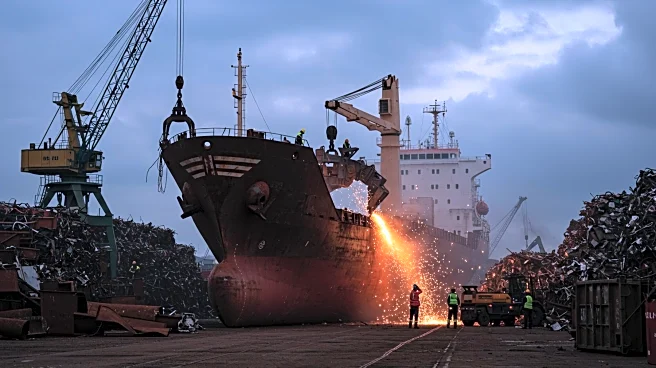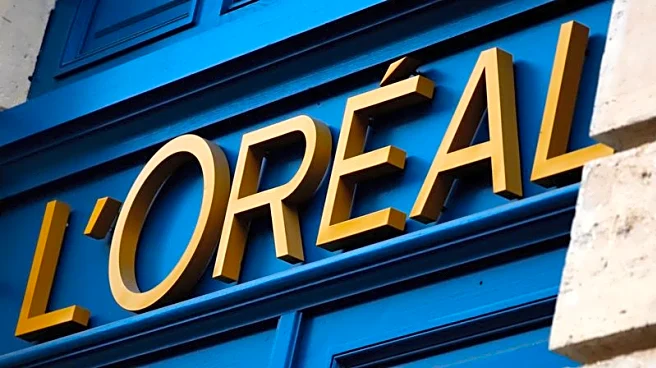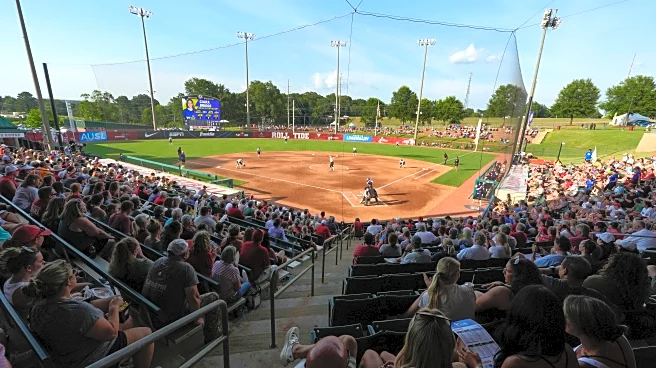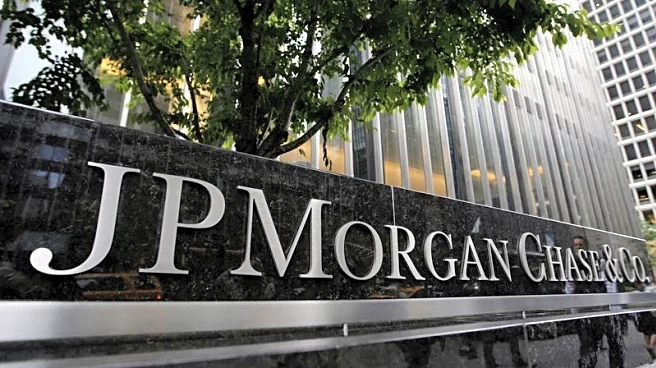What is the story about?
What's Happening?
The Solong, a containership involved in a collision with the U.S. tanker Stena Immaculate in the North Sea, has arrived in Belgium for recycling. The ship, which had been berthed in Aberdeen, Scotland, for damage assessment, is now at Galloo's recycling yard in Ghent. Galloo, a metals recycling firm, plans to complete the recycling by late 2025 or early 2026. The collision resulted in the disappearance of one sailor and the rescue of 36 others. The captain of the Solong remains in custody in the UK, facing charges of gross negligence manslaughter. Investigations into the incident are ongoing, focusing on navigation practices and environmental conditions.
Why It's Important?
The recycling of the Solong marks a significant step in addressing the aftermath of the North Sea collision. The incident highlights the importance of maritime safety and the need for stringent navigation and watchkeeping practices. The legal proceedings against the captain underscore the serious consequences of maritime negligence. Galloo's expertise in recycling ships contributes to environmental sustainability by converting materials into renewable raw materials. The ongoing investigation by the UK's Marine Accident Investigation Bureau may lead to improved safety regulations and practices in the maritime industry, potentially preventing future accidents.
What's Next?
The recycling process for the Solong is expected to be completed by early 2026, with Galloo aiming to recycle over 97% of the ship's materials. The legal case against the captain will continue, with potential implications for maritime law and safety standards. The Marine Accident Investigation Bureau's findings could influence future regulations and practices, enhancing safety in maritime operations. The incident may prompt discussions on the use of anchorage areas and environmental conditions affecting navigation, leading to policy changes and improved safety measures.


















